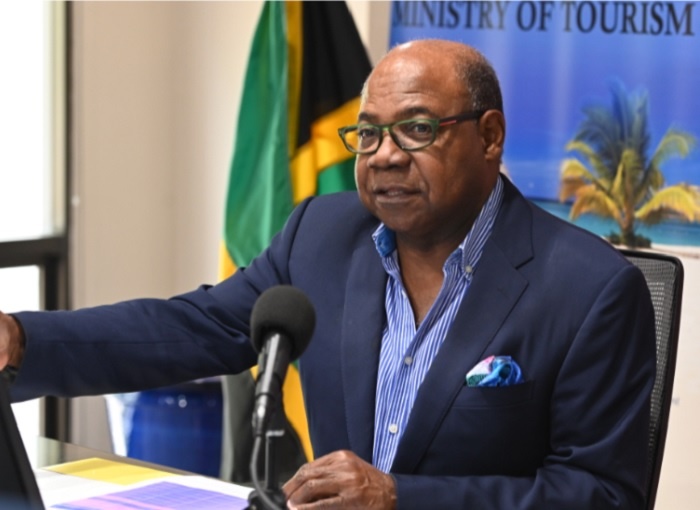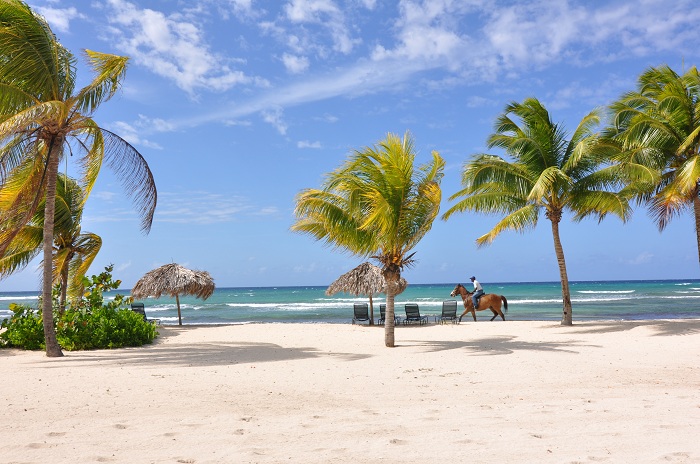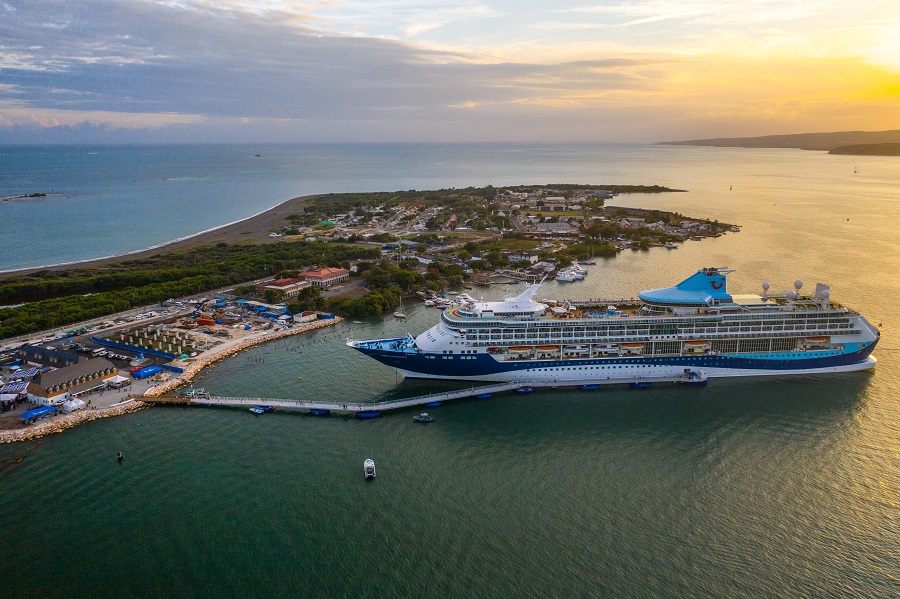
Breaking Travel News interview: Edmund Bartlett, minister of tourism, Jamaica
Always an eloquent speaker, Jamaica minister of tourism Edmund Bartlett is in his element discussing how the sector can drive economic recovery in the wake of the coronavirus pandemic.
As part of the Reengineering Readiness conference, he here tells Breaking Travel News editor, Chris O’Toole, about the challenges faced by hospitality in the Caribbean and what the post-Covid-19 world might look like.
There is no question now that tourism has been among the economic sectors hit hardest by the Covid-19 crisis – a phenomenon amplified in countries most reliant on hospitality to pay the bills. Jamaica is one such example, with its entire US$3.7 billion travel sector put on hold by the spread of coronavirus. Overnight, the destination went from being one of the success stories of global tourism, to being virtually closed for business.
But tourism is nothing if not resilient, and the sector will be at the heart of the economic recovery, argues Jamaica minister of tourism Edmund Bartlett.
“The most resilient economies will be driving the recovery, and travel and tourism will be a multiplier - and an employment engine across all sectors,” he explains. “Jamaica has a unique perspective on resilience - the ability to recover quickly from difficult conditions. As an island nation, we have always had to think about resilience. An island is a paradox in that in many ways it is more vulnerable than other countries, but in many ways being an island provides strength and the ability to act with agility.”
Indeed, the process of recovery had already begun, the minister continues.
ADVERTISEMENT
“The Caribbean as a whole, with 20 countries, had seen 84 deaths and 5,000 cases of Covid-19 – which is phenomenal. We have managed this crisis extraordinarily well, and we have managed the virus well. In Jamaica, we have a little over 500 cases and nine deaths – while, right now, we have nobody who is critical or in hospital.”
He adds: “We have done well, but we have done it at great cost. We have had to lockdown substantially, we did not lockdown totally, and engaged in all the protocols advised by the Centres for Disease Control & Prevention and World Health Organisation – even going further in some instances. The penalty has been unemployment, which is currently standing 12.5 per cent, and may go higher. The whole tourism industry has been locked down, placing US$3.7 billion in foreign exchange earnings at risk – and to date we have lost nearly US$1 billion. But the good news is that we have flattened the curve and we can look at a reopening in the next few weeks.”
However, Jamaica will need help to recover, and this is an area which vexes international policymakers greatly.
Institutions such as the World Health Organisation have been damaged by the coronavirus pandemic, and need to revaluate their role as we move forward, minister Bartlett contends: “The global imperative is that we work together across sectors, across regions, to develop a framework that can help solve the global challenge of how to restart the travel and tourism economy.”

Speaking as part of the Re-engineering Readiness conference, he continues: “This event is a seminal moment, a serious examination of the way forward – we need to look at how we are going to manage disruption to the tourism sector moving forward. Of course, Covid-19 will be foremost in our minds, but we need to look at how we can bounce back from shocks that are going to happen – and then go and thrive. We need to examine the resources we have, how equitably those resources are distributed, and what influence we have over that distribution to enable more people around the world to have a sense of a future. We have to close the loop a little, with how resources are distributed, allowing for small- and medium-sized countries to manage their economies and reduce the level of a-symmetry there. In short, we need more access for a wider group of countries, so we can narrow the gap and keep the world safe. This is certainly true of us in the Caribbean, and the vulnerabilities, resource constraints and susceptibility to shocks we have - before Covid-19 is even over, we are now preparing for the hurricane season, for example.”
Speaking to Breaking Travel News, he adds: “International institutions have been established to ensure equity in resource distribution, but they have been weakened and lost their ability to deliver. We need to look at ways to reengineer these bodies to ensure a more even distribution of resources. I have previously called for a ‘global resilience fund’, to allow for weakened countries, those who are vulnerable and poor, to draw support and rebuild in the wake of disaster. The absence of such a fund is a concern, especially a time when the World Bank and IMF are not focusing on this specific area. They have a broader mandate to examine broader economic concerns; so, we need a new body to make our voices heard in tackling these shocks.”

Last year, working with the University of the West Indies, minister Bartlett formed the Global Tourism Resilience & Crisis Management Centre and is currently involved in developing sister-centres around the world. This May the body will hold a virtual event, convening a panel with experts from around the world who will be sharing ideas and solutions around issues critical to restarting the ‘Generation-C’ tourism economy. Together they will work to find technological solutions, infrastructure enhancements, training and policy frameworks that are essential to tackling the health and safety, transport, destination and overall approach to tourism resilience.
Minister Bartlett explains: “Our source markets, in the United States and the United Kingdom, have been hard hit, and we need to establish protocols for arriving guests. These are still under discussion, for example, will we require tourists to pre-test before arrival? Of course, airlines have their own protocols, airports add a layer – where we are is a huge programme of trying to manage the risk. When guests arrive in Jamaica, we want that risk to be as small as possible. This makes it easier for us to then offer better institutional support in the event that something does go wrong. I have previously discussed ‘Generation C’ – and they will be characterised by a demand for Covid-19 security.”
He adds: “Destination assurance will now be a big feature in consumer choice, people are going to want to visit places where they feel health levels are of the highest quality. They will also want confidence that, should infections occur, there are arrangements to take care of them – medical facilities, testing availability and quick repatriation. These are new requirements for destinations, and Jamaica is working hard to put these in place.”
Institutions around the world will be vital in recalibrating the sector as the impact of Covid-19 recedes and travellers begin to consider their next moves.
Minister Bartlett concludes: “There will be a role for international institutions in developing protocols, and the UNWTO and WTTC, as two leading international bodies, have sought some level of standardisation. These can be supported by the Global Tourism Resilience & Crisis Management Centre which we have worked hard to develop. They can offer a barometer of Covid-19 security in a destination, to provide the travel, and investors, with information. This is a key message from the Re-engineering Readiness summit – we must establish this index of global preparedness with regard to Covid-19.
More Information
Jamaica is considered the World’s Leading Family Destination by voters at the World Travel Awards.
To find out more about visiting – when the time is right – head over to the official website.

